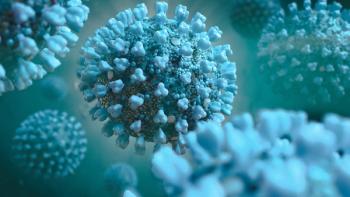
DDS-1 Probiotic Survives in the Gut, First-Ever Persistence Study Shows
The human clinical study is the first to examine DDS-1’s persistence in the gut.
The DDS-1 probiotic strain of Lactobacillus acidophilus survives the journey through the entire human digestive tract, ultimately persisting and colonizing in the gut for a period of time, a new study shows. The human clinical study is the first to examine DDS-1’s persistence in the gut.
The study researchers set out to determine whether bacterial strains Lactobacillus reuteri ATCC PTA 6475 (MM4-1) and Lactobacillus mucosae FSL-04-strains that are autochthonous, or native to the body, but that are not known to be probiotic in nature-could be established more efficiently and persist in the human gastrointestinal tract compared to an allochthonous (foreign to the body) probiotic bacterial strain such as the DDS-1 strain of Lactobacillus acidophilus.
The 12-subject, blinded, crossover study was conducted over three separate eight-week periods, with each period separated by three to four weeks (subjects were given a different probiotic strain in each of the three segments). Subjects’ fecal samples were tested weekly-during baseline and at days 1, 8, and 15 of the washout periods.
All three supplemented probiotic strains survived gastric passage and were temporarily detectable in fecal samples. The autochthonous, nonprobiotic strains L. reuteri and L. mucosae reached higher populations than the DDS-1 probiotic strain. “[T]he restricted ability of L. acidophilus to form stable populations in the human…is likely due to the absence of specific adaptive features that are evidently present in L. reuteri and L. mucosae,” they wrote.
However, all three strains were persistent in the gut. “Although our data indicated that the two autochthonous Lactobacillus strains could be established in higher numbers in the human gut, the strains were no more persistent than the allochthonous strain,” the researchers wrote.
Eight days past supplementation, however, researchers did not detect any of the probiotic strains, “showing that persistence of all three strains remains short term in most individuals.”
In discussing the results, the study researchers wrote that the human body sometimes forms “colonization resistance” to allochthonous (foreign to the body) bacterial strains and might quickly eliminate the probiotics. They state:
Although many of the commercially available probiotic strains are of human fecal origin and are capable of surviving gastrointestinal passage, they are still rapidly eliminated after administration has ended.5-12 The inability of probiotic bacteria to persist in the human intestinal tract has been attributed to the phenomenon of colonization resistance, whereby the resident gut microbiota restricts access of allochthonous organisms.13
Probiotic supplier
As for the temporary persistence exhibited, Michael Shahani, COO for Nebraska Cultures, says, “The point is that most probiotic strains are actually strains that don’t stay around too long in the gut. Normally you need to perform probiotic supplementation on a regular basis.”
It’s good news that DDS-1 persists in the gut for a period of time, he says. “The DDS strain is not going to stay in the gastrointestinal tract forever, but it does stick around for awhile-meaning that if you can show, through efficacy studies, that the strain actually has some benefit, then it’s actually going to stay in the gut long enough to provide that benefit.”
He continues, “If you have a strain of bacteria that shows wonderful benefits and yet won’t stay in the gut for any length of time and is gone within a day or so, it’s not really going to help you very much.”
“Our intention is to be able to guarantee that our DDS-1 strain gets to where it needs to go for users to reap the largest benefits of using probiotics, and this study allow us to do just that,” he stated in a press release.
Reference:
S Frese et al., “Comparison of the Colonization Ability of Autochthonous and Allochthonous Strains of Lactobacilli in the Human Gastrointestinal Tract,” Advances in Microbiology, published online September 2012.
Newsletter
From ingredient science to consumer trends, get the intel you need to stay competitive in the nutrition space—subscribe now to Nutritional Outlook.




